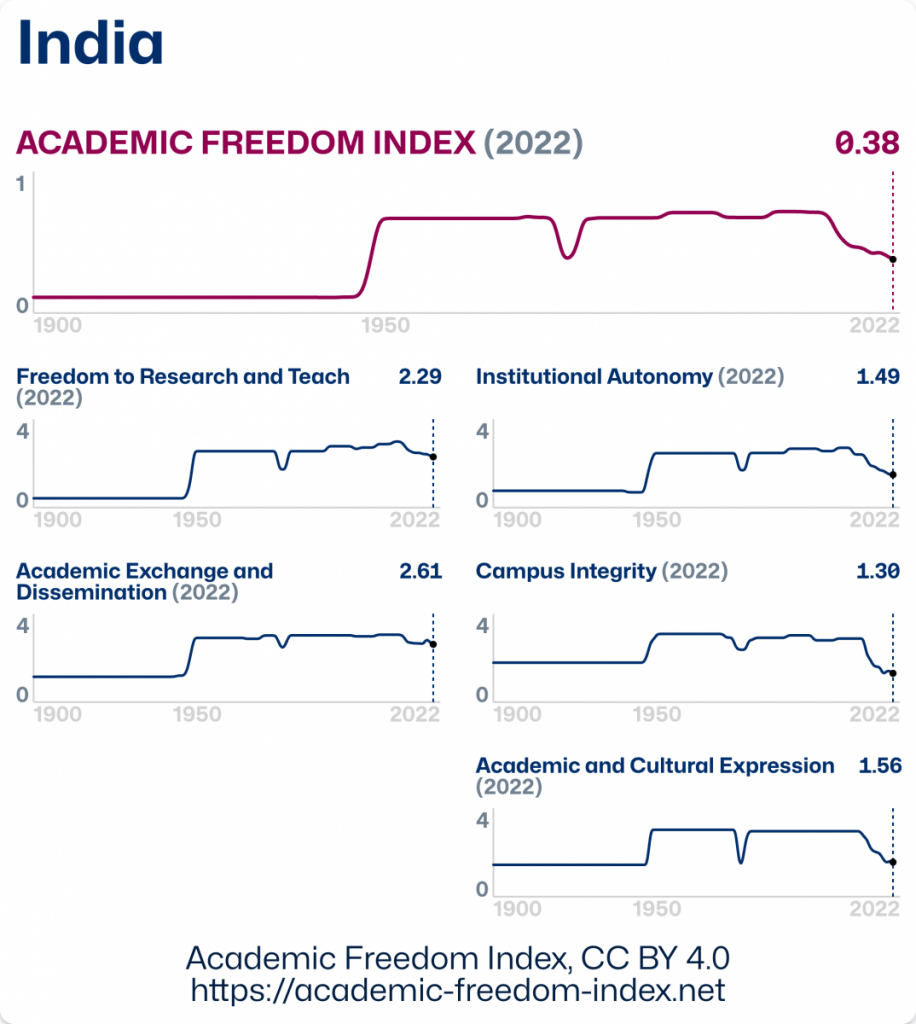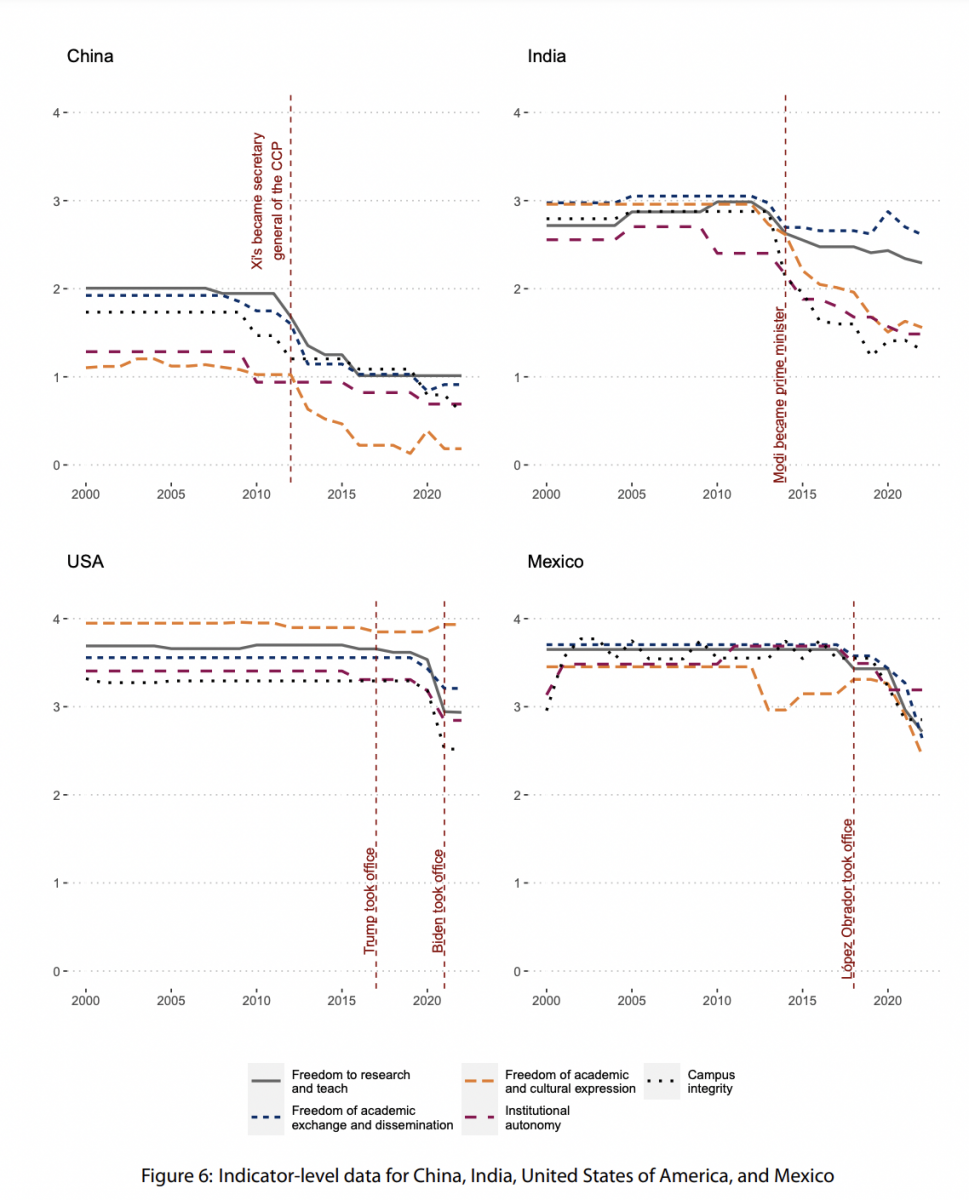New Delhi: In a 2023 update to its ‘Academic Freedom Index,’ the V-Dem Institute has noted that India is among 22 countries and territories out of 179 in the world, where institutions and scholars enjoy ‘significantly less freedom today than 10 years ago.’
The update focuses on detailed comparative studies between the decline in academic freedom in India since 2013, to those in the United States, China and Mexico.
In the Academic Freedom Index published last year, India had received a score of 0.38 in a table of 0 to 1, where 1 is the highest academic freedom. The country was in the bottom 20-30% bracket.
India was behind immediate neighbours Nepal (0.86), Pakistan (0.45) and Bhutan (0.46) and before Bangladesh (0.25) and junta-ruled Myanmar (0.01).

India, along with China, Afghanistan and Myanmar, are identified as countries where political events have severely reversed promising developments in the academic sector.
In India, academic freedom started to decline in 2009 with a drop in university autonomy followed by a sharp downturn in all indicators from 2013, the report notes.
“Around 2013, all aspects of academic freedom began to decline strongly, reinforced with Narendra Modi’s election as prime minister in 2014. Campus integrity, institutional autonomy, and the freedom of academic and cultural expression declined more strongly over the following years than the freedom to reach and teach and the freedom of academic exchange and dissemination,” the report says.
This was the time that India dropped on the electoral democracy scale too, and is now labelled by V-Dem as “an electoral autocracy.”
The report notes that the undermining of institutional autonomy aligns with research that argues that “centralisation, bureaucratisation, and politicisation has historically produced weak university autonomy in India.”
The report also observes that there are no laws that particularly protect academic freedom, leading to their increased vulnerability under “Modi’s Hindu nationalist government.”
As seen in the figure below, the report studies the decline of academic freedom with attention to the points in time at which rules with autocratic bends assumed power.
In China, the report’s graph shows that a slide was already in place when Xi Jinping became secretary general of the CCP and continued afterwards. In India, too, the slide which had started before Narendra Modi became prime minister, continued.

In the US, the decline is defined by the Donald Trump years but appear to have stabilised under Joe Biden. In Mexico, precipitous decline was seen shortly after Lopez Obrador took office.
The report also says that what distinguishes India from other cases is notable pressure on the institutional dimensions of academic freedom – institutional autonomy and campus integrity – combined with constraints on academics’ freedom of expression.
“Although there is undoubtedly sub-national variation at institutional level and across disciplines, it is noteworthy that the freedom to research and teach and the freedom to exchange research findings are less constrained than the other dimensions of academic freedom,” the report claims.
In summary, India “demonstrates the pernicious relationship between populist governments, autocratization, and constraints on academic freedom,” it says.
This article was originally published by The Wire on March 3, 2023.
Also Read: Revised I-20 Rules Bring Relief To Anxious Students, Worrisome Parents













